
Supertramps are species that have spread around the world in association with humans and they include rats, house mice and a host of weedy plant species. Among birds, arguably the greatest supertramp is the House Sparrow. From its origins in the Middle East, the House Sparrow followed the spread of agriculture throughout Europe and southern Asia and its expansion was only halted in eastern Asia by competition with the closely related Eurasian Tree Sparrow.
During the second half of the 19th century, House Sparrows were introduced to New York, Buenos Aires, Melbourne, Durban and Zanzibar and, aided by further introductions, spread rapidly throughout much of the New World, Australasia and Africa. They are now found in man-modified habitats throughout much of the world and are considered to be one of the most abundant birds on earth.
Much of their success stems from their ability to live in modified habitats. House Sparrows are at home foraging for scraps indoors and are often found inside shopping centres and airport terminals. Most breed in cavities in buildings; indeed, in southern Africa, Dassen Island is the only place they regularly breed in trees, because there are only a few buildings with suitable nesting sites. Famously, a pair even bred 640 metres underground in a Yorkshire coalmine!
However, for the past few decades there have been concerns about decreases in urban House Sparrow populations. This was first highlighted in the United Kingdom, where there is the longest record of sparrow numbers. Populations initially fell in the 1920s, when the shift to motor vehicles reduced the amount of spilled horse food.
This story is from the January/February 2022 edition of African Birdlife.
Start your 7-day Magzter GOLD free trial to access thousands of curated premium stories, and 8,500+ magazines and newspapers.
Already a subscriber ? Sign In
This story is from the January/February 2022 edition of African Birdlife.
Start your 7-day Magzter GOLD free trial to access thousands of curated premium stories, and 8,500+ magazines and newspapers.
Already a subscriber? Sign In
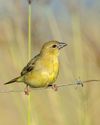
agrochemicals and birds
By the year 2050, it is estimated that 171 million more hectares of agricultural land will be needed to feed a global population of 10 billion people.
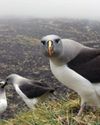
arrivals and departures
The Mouse-Free Marion Project is committed to ensuring that breeding seabirds can return to a predator-free Marion Island.
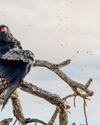
FULL skies
High summer brings high entertainment to Botswana's Mababe Community Concession and Kazuma Pan.
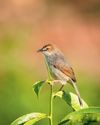
specials IN THE MIST
With a distinct habitat and climate, Zimbabwe's Eastern Highlands are a must-visit destination for any birder wanting to see a bevy of special birds.
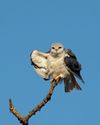
MIDRAND marvel
Gauteng birders don't need to travel far to get their feathery fix. Midway between Johannesburg and Pretoria, Glen Austin Pan has become a favourite patch for this returnee expat.

IN TOO DEEP...again
The annual sardine run along South Africa's east coast is a thrill and a challenge for underwater photographers, especially if you throw birds and inclement weather into the mix.
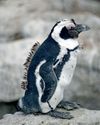
a journey through the mysteries of moult
As a bird researcher in South Africa’s botanically diverse fynbos biome, I have come to regard bird ringing as part of my journey to understanding moult.

Southern SIGHTINGS
The midsummer period lived up to its reputation as the busiest time for rarities in southern Africa and produced a host of really good records, including several that got twitchers racing all over the subregion to try and add these mega ticks to their lists. As always, none of the records included here have been adjudicated by any of the subregion's Rarities Committees.
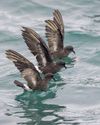
storm petrels in Kalk Bay
According to Roberts 7, both Wilson’s and European storm petrels occasionally seek the shelter of breakwaters during periods of strong onshore winds, but this is seldom observed off South Africa.

power-napping penguins
Periodic reduction in neural activity (sleep) is found in all animals with brains and seems to be essential to restore effective brain function. There is plenty of evidence of the adverse effects of not getting enough sleep, and recent research in humans has identified getting sufficient sleep as one of the four core pillars of living a long and healthy life.